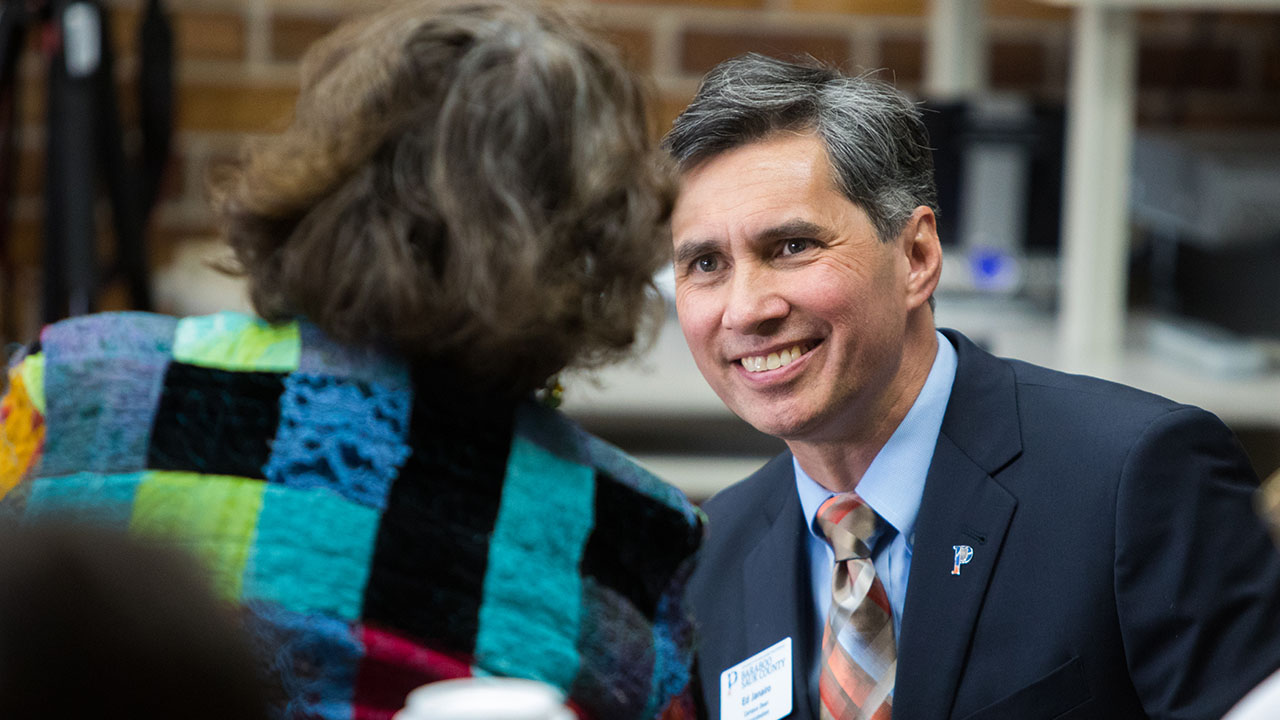
Ed Janairo has been dean at the UW-Platteville Baraboo Sauk County campus since the integration of the branch campuses in 2018. As campus dean, he leads the operation of the Baraboo Sauk County campus, from academics and student affairs, to budget and administration and management of facilities and other operations, to external relations with alumni, government, and other stakeholders. From 2017-18, when the campus was part of the UW Colleges, he served as the day-to-day campus administrator for Baraboo Sauk County, and as the regional associate dean for administration and finance, covering three campuses. He was dean of business and technology at Lakeshore Technical College from 2013-17, and assistant dean for Administrative Services at UW-Sheboygan from 2007-13. He has studied and taught philosophy, and worked in information technology.
Could you talk a bit about the history of the Baraboo Sauk County campus, which goes back more the 50 years?
The campus opened in 1968 and was built as a partnership between the City of Baraboo and Sauk County, with the mission of bringing more access to higher education to the area’s residents. The campus, both the land and the buildings, are owned jointly by the city and the county, and the university has a long-term lease to operate here. That local ownership is important – it’s something I think about all the time. The existence of this campus is due to the will of the local community, and that continues to be the case. That makes for a special relationship with, and obligation to, the area’s growing and changing needs.
What do you think a small campus like Baraboo Sauk County offers students that is different and valuable?
What we offer is an education grounded in the liberal arts that is affordable and accessible, and that is taught by faculty and scholars in the sciences, mathematics, fine arts, humanities and social sciences who are dedicated to the local community. Further, we offer a learning environment with smaller classes, providing an intimate setting that can be more nurturing and personal than is often possible at a larger campus. The faculty and staff get to know students very well – and we make a priority of working with students who may need extra help or preparation. As part of UW-Platteville, we’ll be able to do that more than we have in the past.
You worked in the UW Colleges –– what are some of the big differences you see about being a branch of UW-Platteville? What opportunities do you see for the future?
For 50 years, the campus mainly provided a general two-year transfer curriculum. Students could start here and finish their four-year degree anywhere in the UW System or at other colleges and universities. Now, we have associate degrees in food and agriculture, and in business administration – with more degrees to come – that leverage the resources and expertise on the main campus. The integration with UW-Platteville will allow us to bring even more focused programs to campus including bachelor’s and graduate programs. I hear a lot from leaders in the community that they are excited and grateful to see these expansions coming here to Baraboo and Sauk County.
The Campus Dean has a lot to tend to. What do you wish you had more time for?
I’ve taught philosophy and business courses, and sometimes I get to lecture in a class on campus, but I’d really like to teach more. Also, there’s no better way to get to know students and to hear what they need and what’s on their mind. There’s so much rich, meaningful learning that happens here, and part of the dean’s role is to lead faculty, staff and students in that primary mission, to educate. So, while I try to be in the classroom as much as possible, I wish I could be there more.